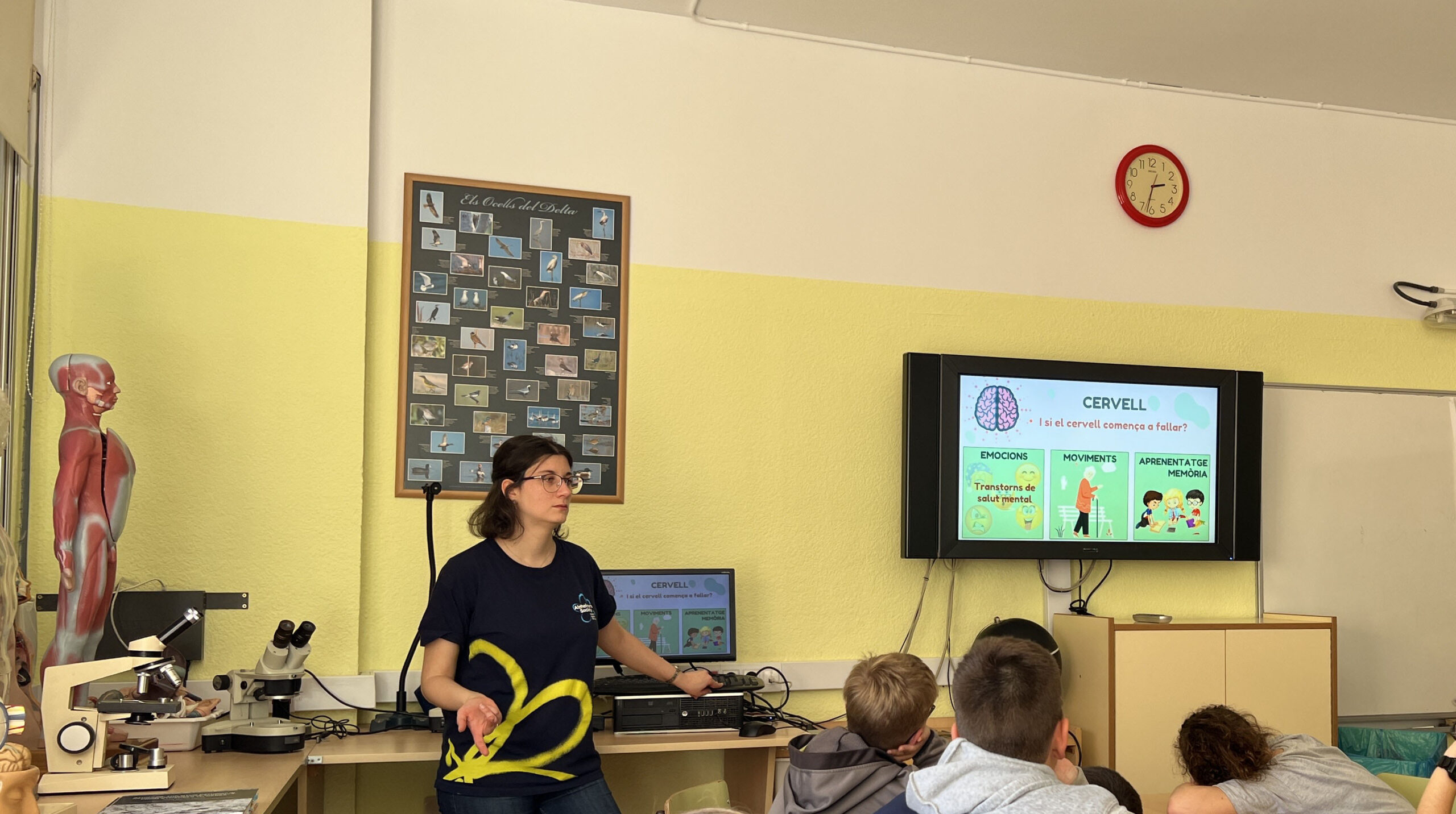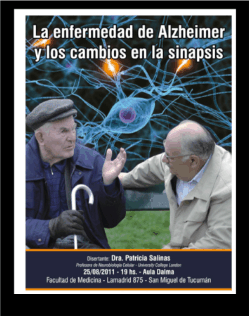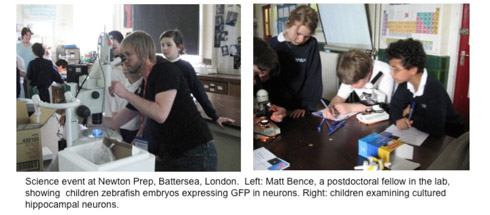We are fully committed to engage with the public to increase awareness of how science contributes to health and understanding of the world surrounding us. We disseminate our results through UCL and funding organization websites as well as other media. Professor Salinas has given public lectures and interviews with the media (BBC World Service and radio). Our group strongly believes that communication with the general public is crucial for people to understand and appreciate the importance of funding basic research to impulse the discovery of new therapies for the treatment of human diseases.
Explaining how the brain works to school students: March 27th, 2023
In March 2023, Nuria, our postdoctoral researcher, gave a lecture to a group of school 10 to 11-year-old students (Barcelona, Spain). The lecture focused on teaching them how our brain works and how it gets impacted by neurodegenerative diseases like Alzheimer’s. Nuria also conducted some really cool games to help the students understand how neurons communicate with each other. It was an absolute delight for Nuria to teach such smart and enthusiastic students with very tough questions!

St Valentine’s fundraising: February 14th, 2020
On St Valentine’s Day of 2020, the Salinas lab organised a Bake Sale to raise money for Alzheimer’s Society. We had so much fun baking all kinds of delicious cakes, and we even had a heart-shaped brownie as the star of the raffle. It was a very successful event!

Saving synapses: July 4th, 2013
Members of the Parkinson’s UK charity visited our lab, met our team, familiarized with our equipment and learned about our research.
![]()
Towards a cure for Parkinson’s disease, 2013
Saving synapses: helping nerve cells stay connected in Parkinson’s.
Patricia Salinas’ gave a talk at this meeting organized by Parkinson’s UK charity.
La enfermedad de Alzheimer, 25th August 2011
Patricia Salina’s gave a public talk in the University of Tucuman, Argentina

Science series in Newton Prep, Battersea, 2009
We are particularly interested in engaging young minds into understanding how the brain works and how animal research is crucial for the development of therapeutic approaches for the treatment of human diseases.
We have started a series of science events at primary schools in London. We have run a science series at Newton Prep in Battersea for 9-11 years old children. The series included a power-point presentation on how the brain works. The children examined primary neuronal cultures under light microscopy to visualize their morphology and learned how neurons form complex neuronal networks. The children also studied how neurons connect one and another in the intact organism by visualization of GFP-labelled neurons in the zebrafish embryo.
